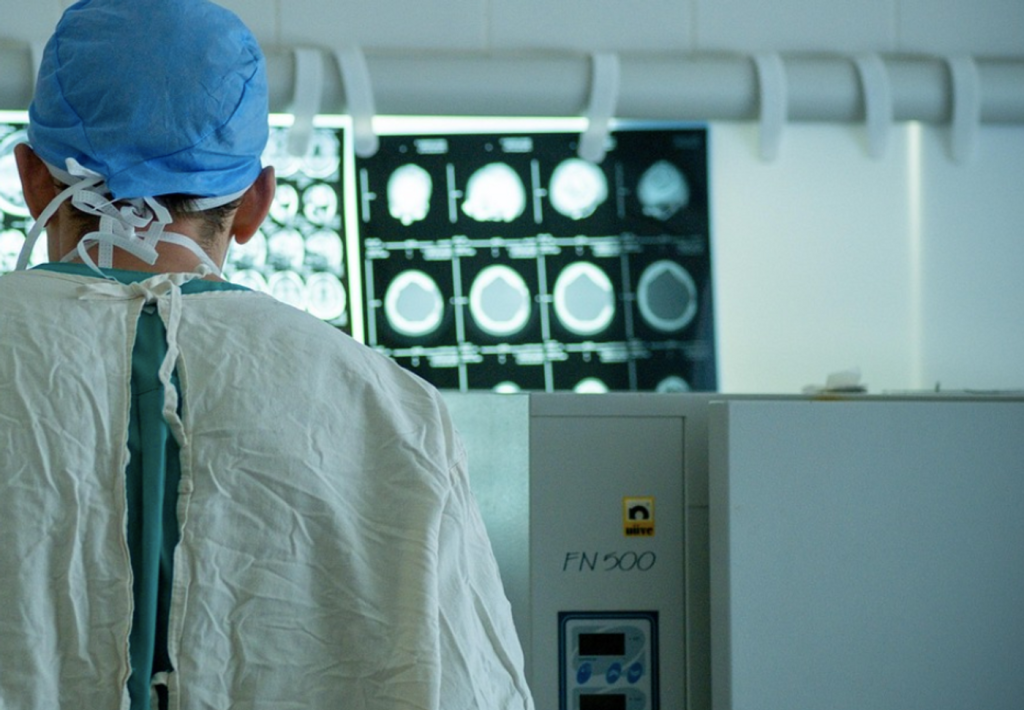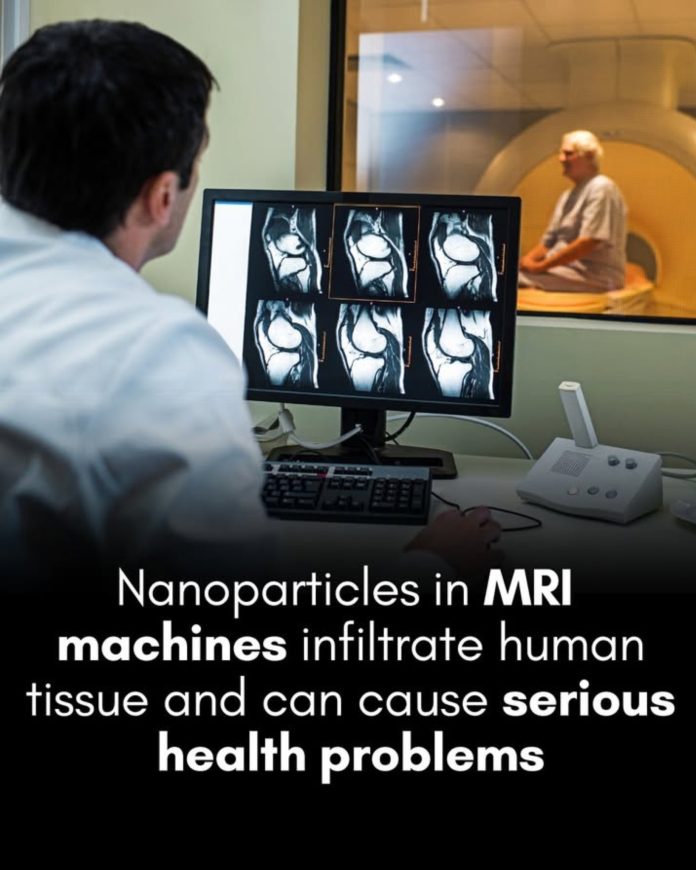Magnetic Resonance Imaging (MRI) machines have long been considered one of the most advanced and safest diagnostic tools in modern medicine. They provide highly detailed images of internal organs, tissues, and structures without the use of harmful radiation. However, recent discussions have raised concerns about an unexpected issue — the potential infiltration of nanoparticles into human tissue during MRI procedures, and their possible impact on long-term health.
Nanoparticles are microscopic particles that measure less than 100 nanometers in size. Due to their size, they can easily penetrate biological barriers and interact with cells at a molecular level. While nanoparticles are not inherently dangerous and are often used in various medical and technological applications, their behavior inside the human body — especially when introduced in sensitive environments like an MRI — is still not fully understood.

During an MRI scan, contrast agents are often used to enhance the visibility of blood vessels, tissues, or abnormalities. Some of these contrast agents contain metal-based nanoparticles, such as gadolinium, which help produce clearer images. While these agents are generally considered safe, concerns have emerged about nanoparticles potentially remaining in the body long after the scan is over, especially in people with impaired kidney function or those exposed to multiple scans over time.
What makes nanoparticles particularly concerning is their ability to bypass the body’s natural defense systems. Once they enter the bloodstream, they can migrate to various organs, including the brain, liver, and bones. Studies suggest that these particles may cause oxidative stress, inflammation, or cellular damage if not properly excreted. In some cases, nanoparticles may also accumulate over time, increasing the risk of toxicity and long-term health complications.
Another issue is the interaction between the magnetic fields generated by MRI machines and the nanoparticles themselves. Some researchers believe that under certain conditions, the powerful magnetic forces could alter the behavior of these particles, potentially making them more reactive or harmful to nearby tissues. Although this area of research is still developing, it raises important questions about safety that cannot be ignored.
People who undergo frequent MRI scans, such as cancer patients, individuals with chronic diseases, or athletes with repeated injuries, may be more vulnerable to these effects. While the risk may be minimal for the average person undergoing a single MRI, the cumulative impact of repeated exposure over time is still uncertain and should be monitored carefully.
Healthcare providers and radiologists must now balance the undeniable diagnostic benefits of MRI scans with the potential risks posed by nanoparticle exposure. More importantly, patients deserve transparency and the opportunity to make informed decisions about their health. This includes being made aware of the type of contrast agent being used, how it behaves in the body, and what steps can be taken to minimize potential risks.

As technology continues to advance, there is hope that safer contrast materials and improved imaging techniques will reduce or eliminate the need for potentially harmful nanoparticles. In the meantime, ongoing research, stricter safety regulations, and greater awareness can help protect patients while still benefiting from the powerful insights MRI technology provides.
In conclusion, while MRI machines remain a cornerstone of medical diagnostics, it’s crucial to stay informed about the possible health implications of nanoparticle exposure. As with all technologies, innovation must go hand in hand with caution — and the safety of human health must always come first.

















